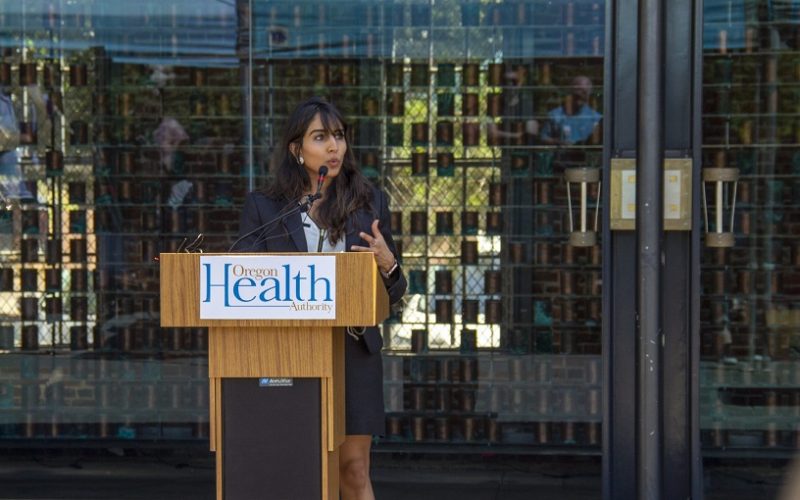Salem, OR – Sejal Hathi, the Director of the Oregon Health Authority (OHA), has accepted a part-time faculty position at Stanford University’s School of Medicine. While Hathi’s leadership of Oregon’s state health agency has garnered attention, her decision to take on a clinical role at one of the nation’s top medical institutions has raised questions about the potential for conflicts of interest and the demands of balancing dual responsibilities.
In this new role, Hathi, a trained physician, will see patients one weekend each month in California. Despite the significant commitment of overseeing a 5,000-person workforce at OHA during the week, she asserts that her clinical practice is vital to keeping her grounded in the real-world experiences of patients navigating the healthcare system. She sees the dual roles as complementary, believing that her clinical experience enhances her understanding of policy and vice versa.
Hathi, who holds an annual salary of $265,488 as OHA Director, oversees a budget of $17 billion, with the agency’s responsibilities spanning public health, healthcare policy, and emergency response. The decision to accept the Stanford position, however, has raised eyebrows. Some observers question whether the demands of such a high-profile leadership position could potentially conflict with the responsibilities of seeing patients on the side.
To mitigate these concerns, Hathi consulted with the Oregon Department of Justice before accepting the part-time faculty role. According to her statements, she was advised that practicing out of state would avoid conflicts of interest, given her responsibilities at OHA. Her part-time position is unpaid, and her time at Stanford will be limited to one weekend per month, allowing her to maintain her leadership role at the Oregon Health Authority.
While it is not uncommon for physicians in administrative roles to continue seeing patients to maintain their clinical skills and licensure, the optics of Hathi’s side job have sparked discussions. Some critics wonder whether the arrangement could distract from the intense responsibilities associated with leading a state agency tasked with addressing critical public health issues, especially at a time when the healthcare system faces ongoing challenges.
Dr. Hathi remains firm in her belief that her clinical practice helps her stay connected to the pulse of healthcare, reinforcing her commitment to improving health systems in Oregon. Her decision to take on this additional responsibility at Stanford University will likely continue to fuel debates about the intersection of clinical work, public service, and the demands of leading a state health agency.











